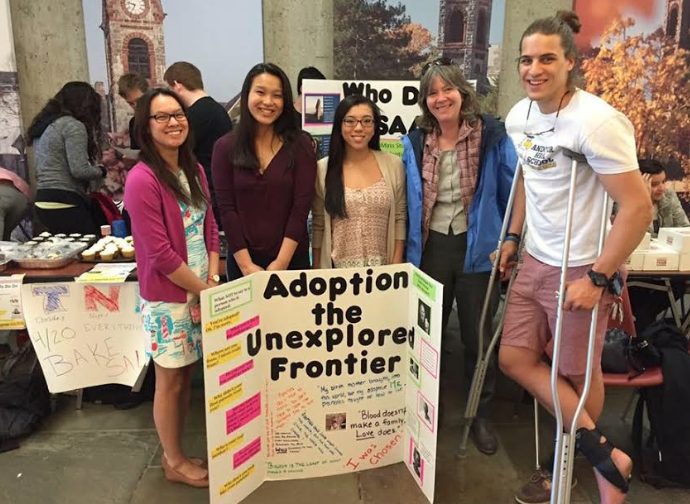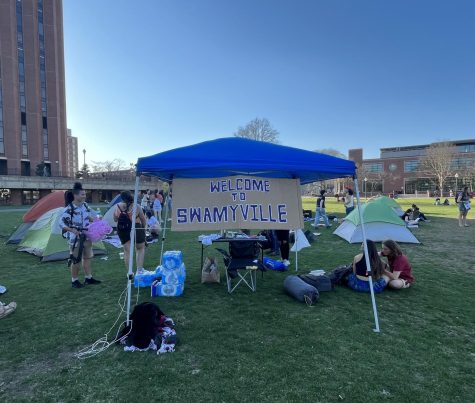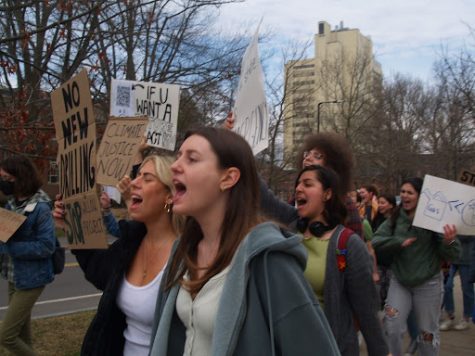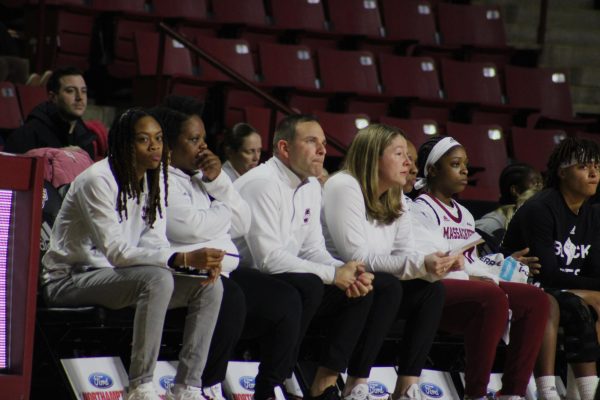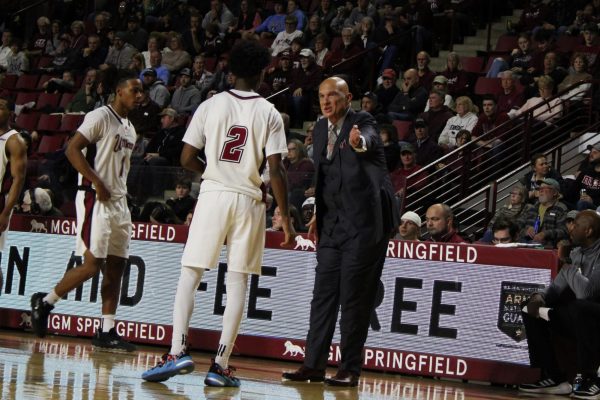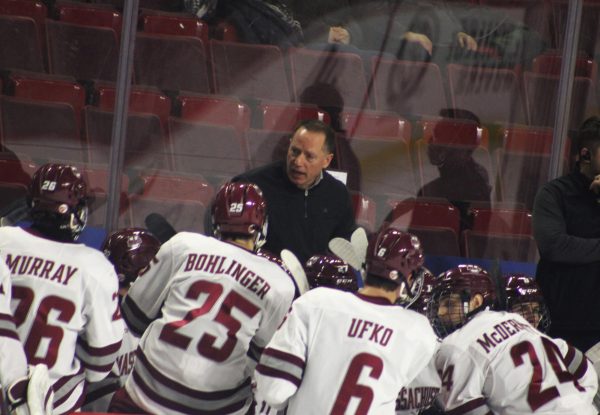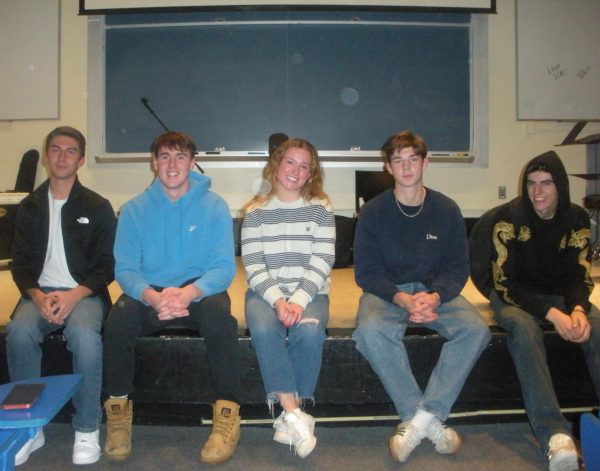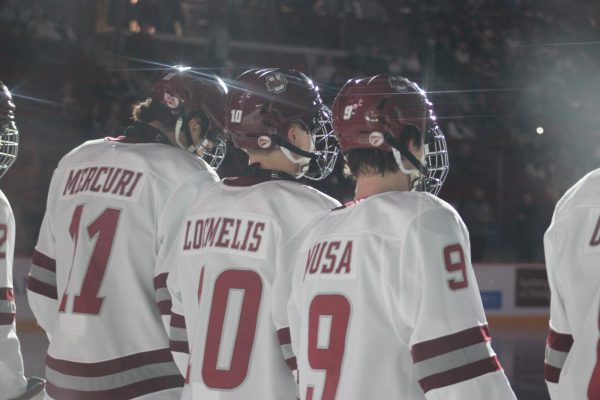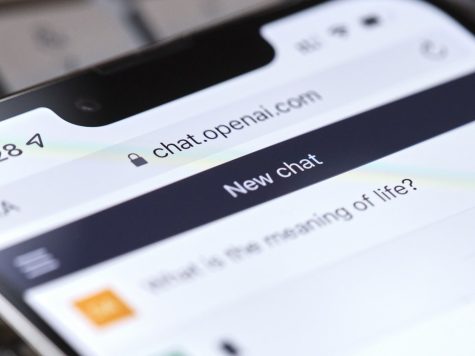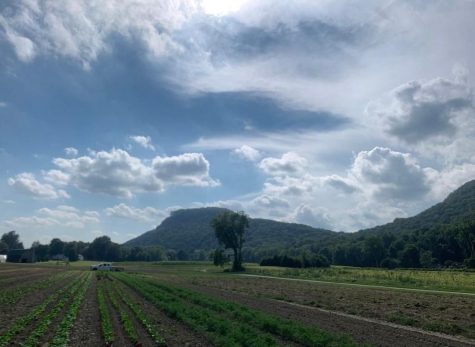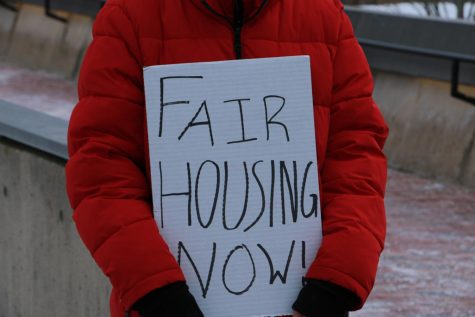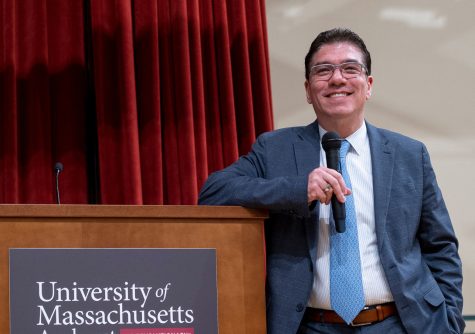Adopted UMass students share stories of struggle and triumph
AMHERST — On a cold winter day, a young child was suddenly taken from her home by police and instructed to cut off all contact with her mother. What followed were a string of court appearances and an abrupt entrance into the foster care system.
This is Ashley Zeller’s story. Now a 20-year-old student at the University of Massachusetts Amherst, she was taken away from her mother who has schizophrenia, and placed into police custody at the age of four.
Even today, Zeller considers this to be “one of the most traumatizing experiences of [her] life.”
Her history of being a foster child inspired her to join the UMass Student Adoption Advisory Board (USAAB). The board teamed up with the UMass Adoption Mentoring Partnership and the Rudd Adoption Research Program to host an open house event on last week called “We Celebrate Adoption.”
USAAB is a relatively new campus organization. It started in the fall with only four members, but has since tripled in size.
Emma Sander was also present at the event. She is the president and one of the founders of USAAB.
“USAAB has been focused on outreach and retention,” Sander said.
The board has been working on photo projects in order to raise awareness and advocate for adoption. Last year, board members advised adoptive parents on how to talk to their children about being adopted.
They are working on “The Suitcase Project,” with the goal of collecting suitcases and duffel bags to replace the garbage bags that the children use to store their belongings while waiting to be placed in a home.
For the event, USAAB members were assigned to specific subcommittees, which covered topics such as LGBTQ adoption, stigma surrounding adoptees, domestic and international law, identity, foster care and mental health concerns.
Contributors to the event created presentations and handed out informative fliers. They also readily answered questions from the event attendees.
Some frequently asked questions included inquiries about the current relationship between the student adoptees and their biological parents and the difficult challenges students faced as a result of having been adopted.
In response to a question about the challenges that come with being an adopted child, Joseph Gomolson, a UMass student and USAAB member, described feeling out of place as the only Mexican member of an otherwise white family.
Although he has never met his biological parents, Joseph has no desire to seek them out. He does, however, keep in touch with his biological brother who was adopted by a family in Mexico.
In an essay titled “A Letter from a Daughter,” Zeller wrote about her experience.
“You are my biological mother, but I cannot have you in my life ever again,” Zeller wrote.
As she moved from one foster home to the next, her biological mother, persisted in attempting to locate Zeller and regain custody, she said. She also dragged Zeller through years of custody hearings in court, which can be an anxiety-provoking situation for a child.
Zeller said that over the years she spent in the foster care system, she was rejected by potential adoptive parents who told her that she was a bad person because her birth mother is “insane.” They also gave her codeine-based cough syrup to make her fall asleep at night.
“Not only do I have physical scars, I also have a multitude of emotional scars,” Zeller said.
“We Celebrate Adoption” addressed the psychological impact that the foster care system can have on the children involved.
A 2013 study by Casey Family Programs states foster children are at a higher risk for mental illness and social issues. They often struggle with substance abuse and with trusting others, even as adults.
Zeller was one of the few children who was ultimately adopted by a loving family.
The majority of children who enter the U.S. foster care system either end up returning to their biological parents, or age out of the system without ever having received an adoption request from potential parents, according to the Adoption and Foster Care Analysis and Reporting System (AFCARS).
At the event, Zeller promoted The Treehouse Foundation, an organization located in Easthampton which provides resources to foster children.
Email Tiffany at [email protected].

